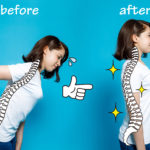Health Blog
34 Billion Spent on Alternative Care - Worthwhile or Waste?

A recent release by the Associated Press reported that Americans spend about 1/10 of their income on alternative care options. Click here for the whole story.
Massage, meditation, yoga, herbal supplements, such as echinacea and ginseng are all commonly used by consumers. But, as Dr. Sidney Wolfe, who leads Public Citizen's health research, notes, many of these "alternative remedies" have little to no proof of their effectiveness.
While some of the remedies may work, Dr. Briggs states in the release, "I personally am pretty conservative about supplement use," Briggs said. She believes that research her center has sponsored has affected consumer use. After widely publicized studies showed the ineffectiveness of echinacea for colds and St. John's wort for major depression, their use fell; fish oil use has risen following some research suggesting it might help lower risk of heart problems."
July 22, 2009
Back to Health BlogHEALTH BLOG
- Physical Activity May Slow the Progression of Parkinson's Disease
- Too Much Salt in Your Diet? Learn the Dangers of High Sodium Intake
- Suffer From Lower Back Pain? Might Be Time to Take A Break
- The Road to Recovery: Preventing Re-Injury After ACL Surgery
- Understanding How Physical Therapy Could Prevent Pickleball Injuries
- How to Strengthen Your Chest With Proper Bench Press Technique
- Physical Therapy May Improve Tendinopathy and Other Hip-Related Issues
- What to Know About an Innovative Technique for Chronic Neck Pain
- New Year, New You: How to Stick to Your 2025 Resolutions
- Tennis Elbow: Causes, Treatment, and How Physical Therapy Can Help
RECENT ARTICLES

- 11 Possible Reasons Your Back HurtsJune 22, 2020

- What Conditions Can a Chiropractor Treat?May 25, 2020

- A Simple Guide to Better PostureApril 30, 2020

- Is Acupuncture Right for Me When I’m Afraid of Needles?March 30, 2020

- Stretching Done Right — How and When to StretchFebruary 26, 2020

